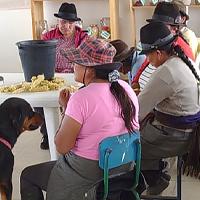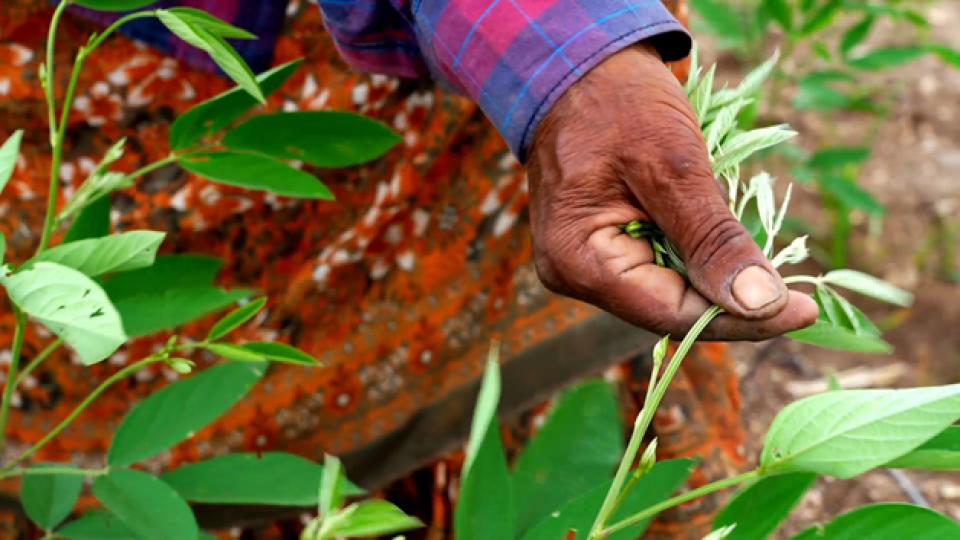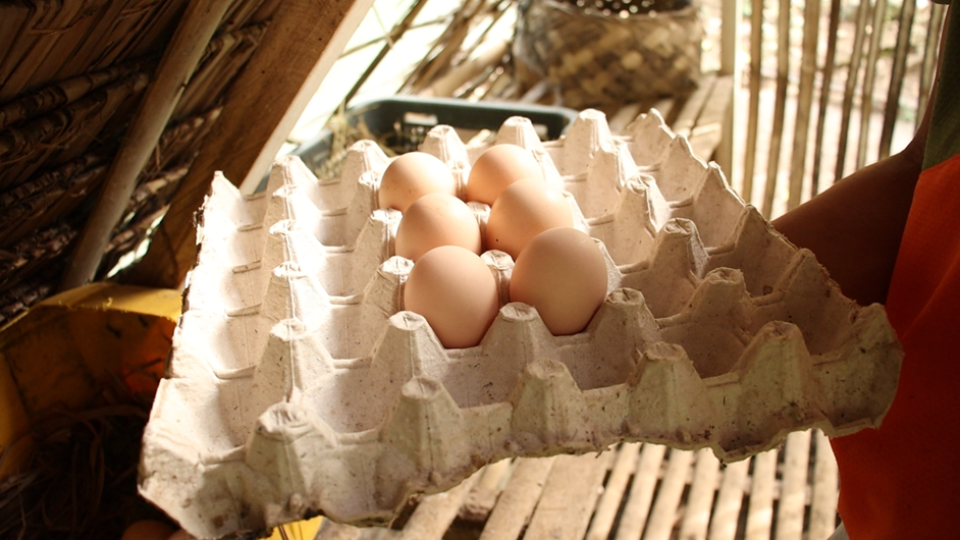

In Ecuador, community organiser, Ing. Guadalupe Padilla, has told me that belonging to a group can help women gain leadership experience. Women become leaders as they work in a group, not in isolation. Guadalupe has helped to organise several such groups. Like a story, the group has to be about something. It has to have a purpose. And that purpose can easily be related to agriculture.
In Cotopaxi, Ecuador recently, while working with Paul and Marcella to film a video on women’s organisations, we met Juan Chillagana, vice-president of the parish (town) council. As an elected, local official, Mr. Chillagana has mentored several women’s organisations, each one organised around a specific product.
We caught up with him on 4 February as he met with a group of women who were growing and exporting goldenberries. The fruit buyer was there, a man in a hair net explaining, “All we ask is that you don’t apply agro-chemicals.” The association members and the buyer weighed big, perfect goldenberries in clean, plastic trays, to take to the packing plant.
We talked with one of the members, Josefina Astudillo, who seemed pleased to be trying this new fruit crop. She guided us to her field, about a kilometre from the community centre where the meeting was held. Doña Josefina proudly showed us her field where the fruit was ripening to a golden perfection. One woman could grow goldenberries by herself, but it takes a group to meet the buyer’s demand: 1,000 kilos a week, at a quality ready to export.
We also met Beatriz Padilla (Guadalupe’s sister), a small-scale dairy farmer, who leads 20 households as they pool their milk. The association sends a truck to each farm, collects the milk in big cans, transfers it to the group’s cold tank. Twice a day, about 1500 litres of milk is collected by two different buyers, including one who comes at 3 AM. It’s a lot of work.
Doña Beatriz explained that she couldn’t do it without the group. She needs the other families so they can get a better price for their milk. A farmer with two cows has to take whatever price the dairy will give her. But an association can negotiate a price.
Margoth Naranjo is a woman in her 60s who has worked her whole adult life in associations, often in groups that included men as well. She started in her local parent-teachers’ association, helping to organise the children’s breakfast. Later, she was the secretary of a farmers’ insurance group, until she became the treasurer and then the president.
Now, with the Corporation of Indigenous and Peasant Organisations (COIC), doña Margoth is helping several women’s organisations, which sell their own agroecological vegetables, to band together for added strength. Sadly, this work came to a standstill during the Covid lockdown, but doña Margoth has recently started organising again.
All of the women’s leaders we met in Ecuador were part of a group. And each group was formed for a concrete purpose, whether for goldenberries, milk or vegetables. Like a good story, the groups were each about something, related to a dream they share: to have a quality product to sell, to improve their livelihoods.
And just as writing improves with practice, leadership sharpens with experience. The influential people we met said that any woman could be a leader if she joined a group and participated long enough.
Related Access Agriculture videos
Farmers’ rights to seed: Experiences from Guatemala
Working together for healthy chicks
Helping women recover after childbirth
Acknowledgements
Thanks to Guadalupe Padilla and Sonia Zambrano for introducing us the farmers in Cotopaxi, and for sharing her knowledge with us. Thanks to Guadalupe and to Paul Van Mele for their valuable comments on a previous version of this blog. Guadalupe and Sonia work for EkoRural, an NGO. Our work was funded by the McKnight Foundation’s Collaborative Crop Research Program (CCRP).


